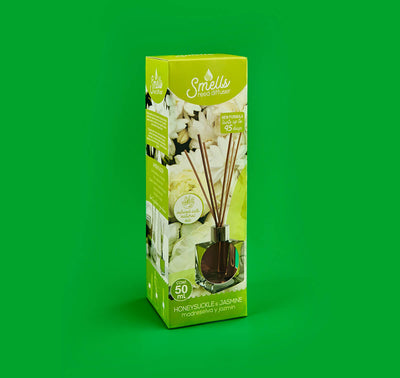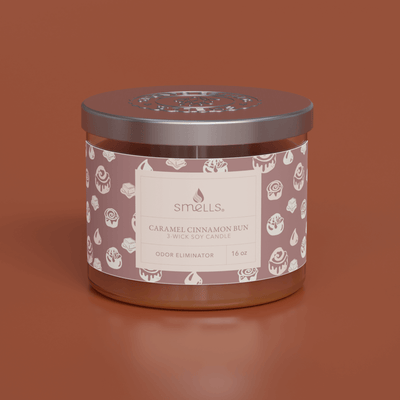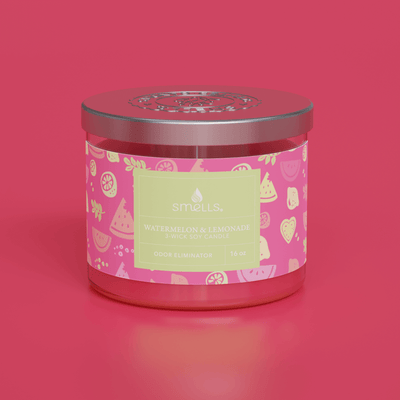Diffuser vs Candle: Which One Is Right for You?
Aromatherapy, an art with ancient roots, has recently experienced a resurgence in popularity. Essential oils are used to improve one's physical and mental health. These oils are botanical extracts that have been studied for their potential psychological, physiological, and spiritual benefits. Diffusers and candles are only two of the many options for practicing aromatherapy.
In this article, we'll compare and contrast the features of diffusers and candles so you can make an informed decision about which one is best for your aromatherapy requirements.

Table of Contents
What Are the Benefits of Using a Diffuser?
Diffusers are devices that diffuse essential oils into the air using water and ultrasonic vibrations. When you add a few drops of essential oil to the diffuser's water, the ultrasonic vibrations break the oil down into small particles, releasing a thin mist into the air. This mist not only fills the air with a lovely perfume, but it also has a number of health advantages.
Diffusers can help with relaxation and stress reduction. Lavender, chamomile, and ylang-ylang essential oils have natural sedative effects that can help relax the mind and encourage deep sleep. Diffusers are especially effective in bedrooms, where they can help to create a relaxing environment conducive to sleep.

What Are the Benefits of Using a Candle?
Candles are a popular aromatherapy option because they provide a warm, cozy atmosphere while filling the room with a pleasant fragrance. They are easy to use and can be found in a wide variety of scents, making them a versatile option for anyone looking to incorporate aromatherapy into their daily routine.
One of the primary benefits of using a candle is that it can create a calming atmosphere that promotes relaxation and reduces stress. The warm glow of a candle can create a soothing ambiance that can help you unwind after a long day. Additionally, many scented candles are made with essential oils that have natural relaxing properties, such as lavender or vanilla.
Another benefit of using a candle is that it can be an odor eliminator. Certain scents, such as citrus or mint, have natural deodorizing properties that can help eliminate unpleasant odors in your home. Lighting a candle in your kitchen or bathroom can help neutralize bad smells and create a fresh, clean scent.
Candles are also a great way to add a touch of ambiance and romance to your home. The soft glow of candlelight can create a cozy, intimate atmosphere that is perfect for a romantic evening at home. Scented candles can also help create a romantic ambiance, with scents like rose or jasmine known for their aphrodisiac properties.
Overall, candles are a great option for anyone looking to incorporate aromatherapy into their daily routine. They are easy to use, come in various scents, and can provide numerous benefits for your mind and body.

Diffuser vs. Candle: Which One Should You Choose?
Now that we've discussed the advantages of both diffusers and candles, it's time to choose which is best for you. There are several aspects to consider when deciding between a diffuser and a candle, including your personal tastes, lifestyle, and money.
A diffuser may be the correct choice for you if you want to enhance your house’s air quality while promoting relaxation. Diffusers are simple to operate and need little upkeep, making them an ideal solution for busy people. They are also available in a range of shapes and patterns, making it simple to choose one that matches your home.
On the other hand, a candle may be the way to go if you're searching for a simple, cost-effective approach to include aromatherapy into your daily routine. Candles are widely available and come in a broad range of smells, making it simple to pick one that meets your specific tastes. They are also an excellent method to create a warm and inviting ambiance in your house.
Personal preference ultimately determines whether to use a diffuser or a candle. Both alternatives have several advantages for your mind and body, so selecting the one that works best for you is critical.
Making the Right Choice for Your Aromatherapy Needs
When it comes to choosing between a diffuser and a candle for your aromatherapy needs, it's important to consider your personal preferences, lifestyle, and budget.
If you're looking for a device that can help improve the air quality in your home and promote relaxation, a diffuser may be the right option for you. On the other hand, if you're looking for a simple, cost-effective way to incorporate aromatherapy into your daily routine, a candle may be the way to go.
Ultimately, the key to choosing the right option is to experiment and see what works best for you. Try out different scents and devices to find the one that helps you relax and promotes overall well-being.
FAQ
What is the difference between a diffuser and a candle?
A diffuser is a device that uses water and ultrasonic vibrations to disperse essential oils into the air, while a candle is a wax-based product that is lit to release a pleasant fragrance. Both options provide numerous benefits for your mind and body, but they work in different ways.
Are there any safety concerns when using a diffuser or a candle?
Both diffusers and candles should be used with caution. Diffusers should be placed on a stable surface and kept out of reach of children and pets. Candles should never be left unattended and should be placed on a heat-resistant surface. It's also important to keep candles away from flammable materials and to trim the wick regularly to prevent fire hazards.
Which one is more cost-effective?
Candles are generally more cost-effective than diffusers, as they are easier to find and require fewer components. However, the cost of essential oils used in a diffuser can vary widely depending on the quality and type of oil. Ultimately, the cost-effectiveness of each option will depend on your personal preferences and budget.
Articles you may love:









Leave a comment